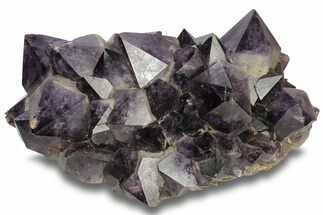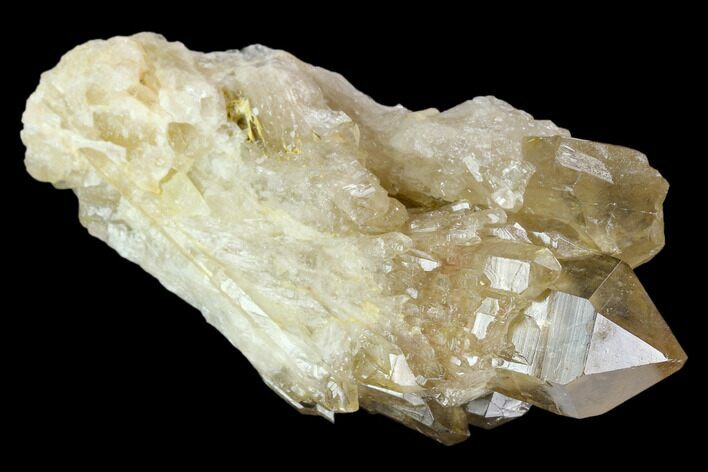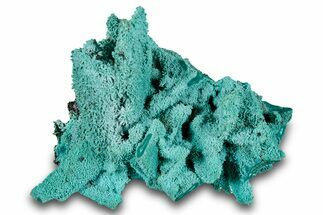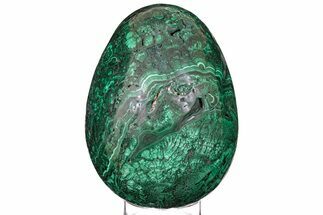This Specimen has been sold.
4" Citrine Quartz Crystal Cluster - Lwena, Congo
This gorgeous quartz/citrine specimen is from the Congo in Africa.
The primary difference between citrine and smoky quartz is color: this stone is also often known as smoky citrine due to its yellowish smoky color. This is the natural color it had when found and has not been heat-treated or altered in any way.
Quartz is the name given to silicon dioxide (SiO2) and is the second most abundant mineral in the Earth's crust. Quartz crystals generally grow in silica-rich environments--usually igneous rocks or hydrothermal environments like geothermal waters--at temperatures between 100°C and 450°C, and usually under very high pressure. In either case, crystals will precipitate as temperatures cool, just as ice gradually forms when water freezes. Quartz veins are formed when open fissures are filled with hot water during the closing stages of mountain formation: these veins can be hundreds of millions of years old.
Quartz is the name given to silicon dioxide (SiO2) and is the second most abundant mineral in the Earth's crust. Quartz crystals generally grow in silica-rich environments--usually igneous rocks or hydrothermal environments like geothermal waters--at temperatures between 100°C and 450°C, and usually under very high pressure. In either case, crystals will precipitate as temperatures cool, just as ice gradually forms when water freezes. Quartz veins are formed when open fissures are filled with hot water during the closing stages of mountain formation: these veins can be hundreds of millions of years old.
SPECIES
Quartz var. Citrine
LOCATION
Lwena, Katanga, Democratic Republic of the Congo
SIZE
4 x 1.9"
CATEGORY
SUB CATEGORY
ITEM
#128416
 Reviews
Reviews














